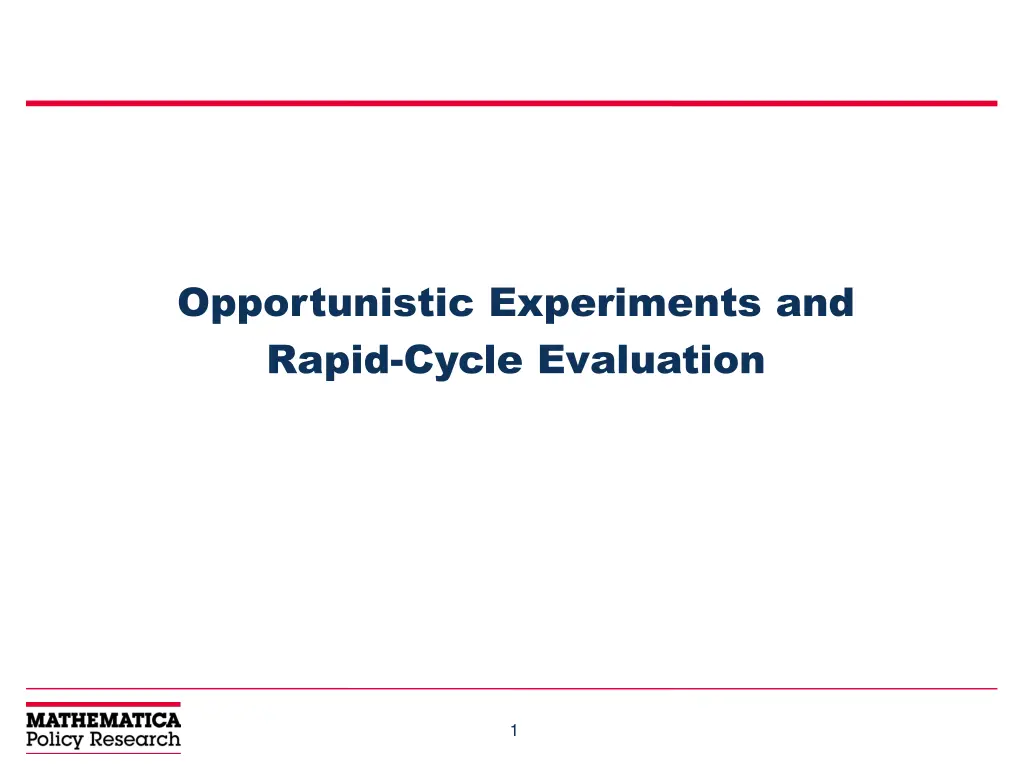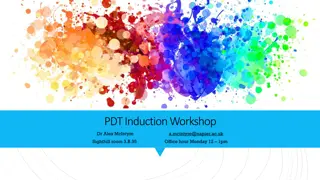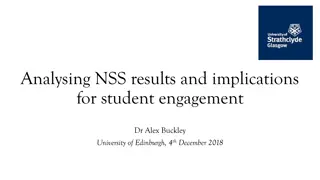
Opportunistic Experiments and Rapid-Cycle Evaluation in Program Development
Discover how opportunistic experiments and rapid-cycle evaluation can benefit program staff and policymakers facing budget constraints. Learn about the characteristics of opportunistic experiments and the advantages of rapid-cycle evaluation in making informed program changes quickly.
Download Presentation

Please find below an Image/Link to download the presentation.
The content on the website is provided AS IS for your information and personal use only. It may not be sold, licensed, or shared on other websites without obtaining consent from the author. If you encounter any issues during the download, it is possible that the publisher has removed the file from their server.
You are allowed to download the files provided on this website for personal or commercial use, subject to the condition that they are used lawfully. All files are the property of their respective owners.
The content on the website is provided AS IS for your information and personal use only. It may not be sold, licensed, or shared on other websites without obtaining consent from the author.
E N D
Presentation Transcript
Opportunistic Experiments and Rapid-Cycle Evaluation 1
State of the States TANF programs experience continued budget cuts and are under increased pressure to prove that their programs work Having to rethink program structures and make fast changes in response to these constraints Facing greater scrutiny of how funds are used Policymakers and program administrators need quick and reliable information about what works and how to improve Opportunistic experiments and rapid-cycle evaluation are tools that can meet the needs of program staff and policymakers, while benefiting the broader research community 3
What Are Opportunistic Experiments? Opportunistic experiments are randomized controlled trials that take advantage of a planned intervention or policy action that is, an opportunity to generate rigorous evidence Characteristics of opportunistic experiments: Opportunity for low-impact random assignment Desire to pilot program before full implementation Resource constraints in short term Intervention that is largely about sharing information Access to administrative data on key outcomes 4
What is Rapid-Cycle Evaluation? Testing program and service delivery changes specific to your context Leveraging administrative data to measure impacts Eliminates the need for wide-scale data collection can drastically reduce costs and administrative burden Making tweaks and changes in response to the data in a shortened timeframe Test and tweak as opposed to test and abandon 5






















